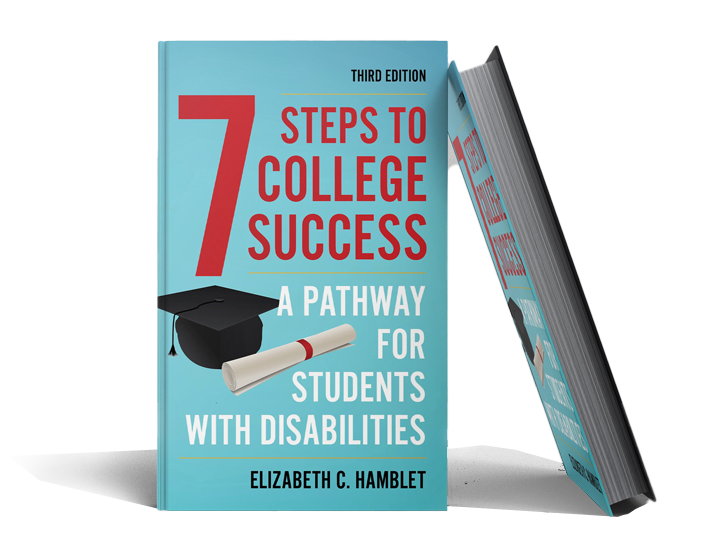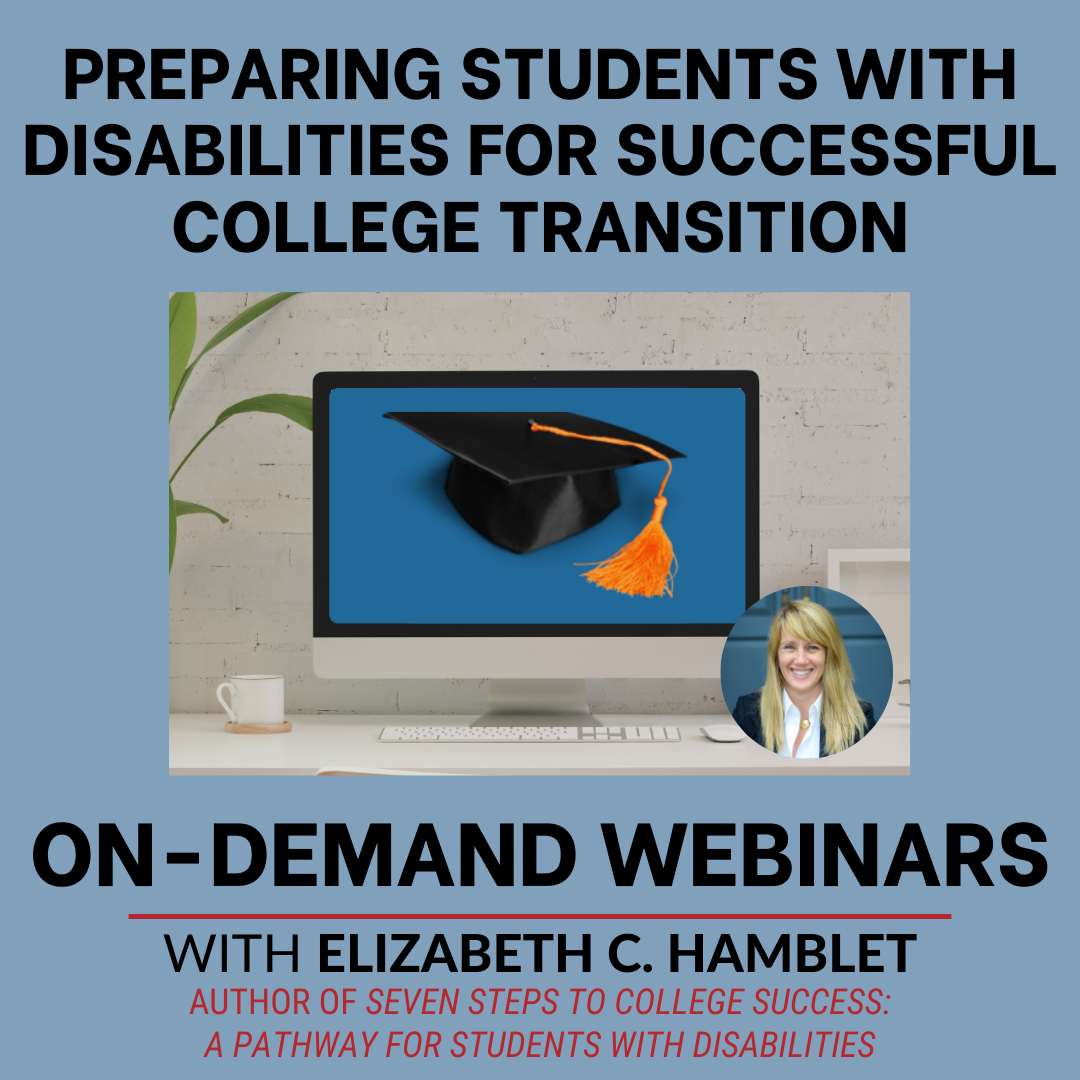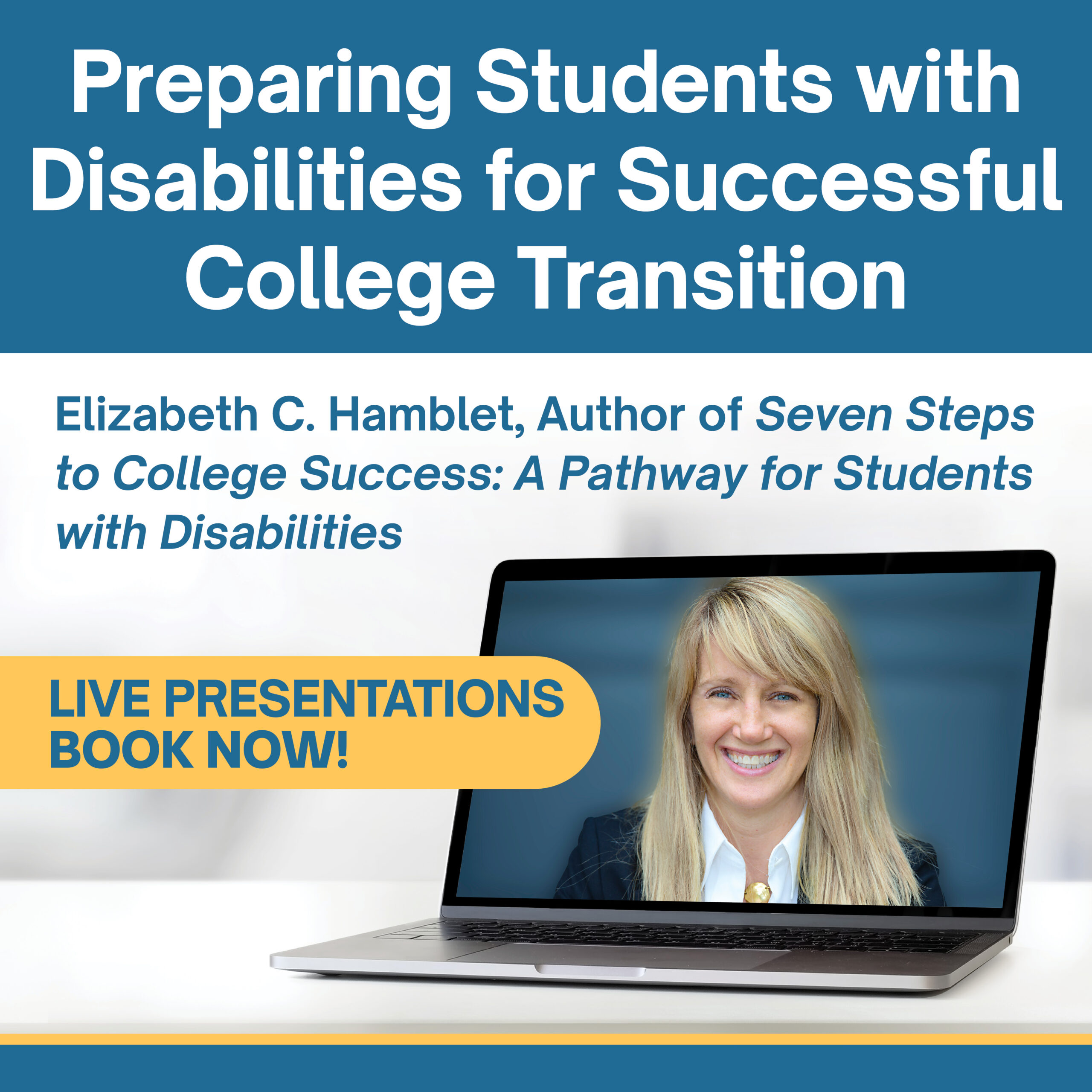Introduction
When I give presentations on preparing students with disabilities for successful college transition, I am sometimes asked whether students with learning disabilities or ADHD should attend certain types of schools, like art school or a community college.
Some people assume that art school is a good place because they focus is on creativity rather than the academic skills that challenge some of these students. Some assume that community college serves as an extension of student’s high school experience (including all of their accommodations and supports). And others think that Ivy League or other highly rigorous colleges are not good places for students with disabilities; they think these students are setting themselves up for challenges that their typical classmates won’t face.
I wanted to get a perspective on these kinds of assumptions when I wrote my second book, so I interviewed disability services directors at each type of school. (They’ve all retired or moved to other institutions, but I think their advice remains current.) Their answers may be surprising to some readers.
Is there anything special or different about community college that you think students should know?
Cindy Poore-Pariseau was Director of Disability Services at Bristol Community College at the time I talked to her.
Yes! There is no such thing as a typical community college student; they come from all walks of life and everywhere. So students shouldn’t be worried that they will somehow stand out in some way- everyone is different.
I think students might also be surprised at the number of resources available college-wide. As I mentioned before, we offer all sorts of services.
One of the benefits of attending community college is that our professors are working in their field, so they bring their professional experiences to their classes. And the emphasis here is on teaching well, not research.
Also, some of our students who go on to earn four-year degrees report to us that our disability services are more supportive than what they receive at their next school. Not all community colleges do this, but we actually solicit and send out progress reports monthly at the beginning of the semester, then at the midterm point. However, professors are not required to respond, so we get responses to about a third of our requests.
On a different note – I think students need to realize that even community colleges will not “hold their hands.” We will be more supportive than many four-year schools, but this is still college, and students have to be responsible for themselves – for requesting their accommodations, getting to class with no reminders, doing their work on time, and seeking help when they need it.
Also, students need to prepare to make productive use of their off-times between classes since they don’t have a dorm they go back to so that they can get work done. Many drive or ride a bus a long way to get here. They should come to school prepared with work to do in their down time (and any materials they may need to do it) so that they can use the time well. They should find a place on campus where they can be productive – the library or maybe a quiet lounge somewhere where they won’t be distracted. I often suggest that students schedule in tutoring during a gap between classes.
Is there anything special you think people involved with students with disabilities should know about art school?
Mai Graves was Director of the Disability Resource Center (DRC) at Pratt Institute at the time I talked to her.
My aim is to help parents and students, as well as their high school counselors and instructors, understand that students considering art school as a postsecondary option need to be serious about studying art and committed to learning about themselves through their art making. They should be aware that there is a critiquing process in any art-based class and students have to be ready to accept learning more about who they are and therefore, what their art will be about.
Art school is an interesting and highly creative environment. It’s very welcoming to students who have talent and those whose talent may be in need of strong nurturing to fully develop. When it is the right environment for students, they can come out of their first year experience understanding their strengths and weaknesses and have a broader vision of what it means to be an artist.
But it is not all fun and games. I think that some people have an impression that art school is an appropriate setting for students who don’t like academic subjects. At Pratt, our core requirements include two full years of art history and some math and science classes. Our students typically take 4-5 art classes and at least 2 liberal arts requirements every semester.
I think some parents and professionals encourage students with LD or ADHD to apply to art school because these students aren’t very engaged with academic subjects but the adults want them to pursue some form of post-secondary education, and they think art school will be interesting to them.
But they shouldn’t assume that students having difficulty with academic subjects will be more interested in and excited by art, especially in situations where these students have not displayed artistic talent or expressed much interest in art. An art education art involves a lot of hard work as any other educational program.
I think some adults also assume that students who have psychological or learning or attention disabilities must be creative because a lot has been written in the popular media over the past several years about this. But everyone is an individual, and while some students with disabilities are artistic, not all are, nor are they all interested in art.
Students will have to produce a portfolio as part of their application to art school, which will be judged by professionals. They will not accept students who don’t really have the talent to be successful at our school, so adults may be setting them up for disappointment if they push students who don’t really have it.
If adults think certain students should explore art or take their hobby and see if they are truly interested in pursuing it, I recommend that they suggest to their student a pre-college art school experience, such as a summer program where they can live at the school and really get used to what art school is like.
What do you think students with learning disabilities and ADHD should know about attending an Ivy League school?
Ward Newmeyer was Director of Student Disability Services at Dartmouth College at the time of his interview.
I notice students (not just students with disabilities, by the way) who experience a feeling that their classmates find Dartmouth easier than they do. They think they need to hide the extent to which they must work to do well in their classes; some study in secret. Some wonder if they got into school by mistake (this is commonly referred to as “impostor syndrome”).
They should know that they are not alone, and that many peers are struggling, too. College is supposed to be challenging. If you got in here, you belong here, and a school like ours has resources to support you.




